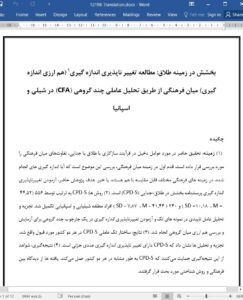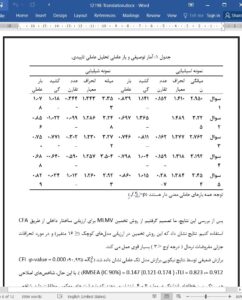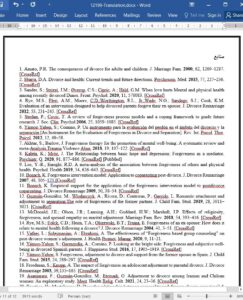Abstract
(1) Background: Current research on the factors involved in the adaptation process to divorce or separation has explored cross-cultural differences. An initial step in the cross-cultural field is to investigate whether the measurements applied are comparable in different cultural contexts. The aim of the present study is to test the measurement invariance of the Questionnaire of Forgiveness in Divorce-Separation (CPD-S); (2) Methods: The CPD-S was completed by 556 (M = 44.52, SD = 10.18) and 240 (M = 41.44, SD = 7.87) Chilean and Spanish divorced individuals, respectively. Confirmatory factor analyses in single samples and measurement invariance testing in a multi-group framework were conducted to test the cross-group equivalence; (3) Results: The single-factor structure of the CPD-S was supported in both countries. Measurement invariance analysis demonstrated that the CPD-S had partial scalar measurement invariance; (4) Conclusions: The evidence supports the conclusion that CPD-S operates similarly across both countries. Findings are discussed from a cross-cultural and methodological perspective.
1. Introduction
Divorce is a stressful experience that involves the reorganization of many areas of life [1], and is usually accompanied by adverse consequences on psychological well-being and mental health [2,3].
Previous studies on the process of adaptation to divorce or separation highlighted the importance of forgiveness, defined as a coping strategy that implies a decrease in negative feelings (i.e., resentment and anger) towards the offender and a reduced desire to punish him/her in response to transgressions [4–6].
5. Conclusions
The measurement invariance testing of the CPD-S supported the partial scalar invariance, which is sufficient to conclude the CPD-S operates in a similar way across both countries. Moreover, the results obtained highlight the relevance of examining measurement equivalence when conducting cross-cultural studies in general, and in the field of divorce research in particular.










